June 10th, 2016 § § permalink

Cirque du Soleil’s Paramour (Photo by Joan Marcus)
I never wanted to run away and join the circus when I was a child. This is no doubt due to the fact that I never saw a circus live (I was aware of them through other cultural means) until I was 23 years old. The first circus I ever saw was the Big Apple Circus.
The founders of BAC began as street performers in England in 1974, but within three years they created a circus that quickly became a New York fixture, with a commitment not simply to selling tickets, but to educating young people about the circus – and through the circus – making certain their not-so-big top was accessible to people throughout the city (not just in Manhattan) at reasonable prices. Set up as a subsidised enterprise, it pursued its mission of a one-ring circus with a genuine intimacy that was in marked counterpoint to the famed Ringling Brothers shows that played arenas in the area annually. Last week, a feature by The New York Times laid out a rather dire outlook for BAC’s future, attributed in part to lost corporate group sales in the wake of the 2008 economic downturn. Their 39th season, at Lincoln Center this fall, is in jeopardy.
As it happens, the report came just after Cirque du Soleil’s Paramour opened on Broadway, the company’s third attempt at a sit-down production in Manhattan. Cirque has beginnings equally as humble as BAC, but its trajectory has been markedly different. Over 32 years, Cirque du Soleil has exploded into one of the major brands in entertainment, with shows both touring and playing in purpose-built venues around the world. I imagine, only slightly facetiously, that its beverage and candy sales each year exceed the entire budget of BAC. Since it arrived on the scene, with its distinctive production values and new approach to circus arts, even using the word circus has become old fashioned – there are countless cirques everywhere, and many have never been near France or Quebec.
In 2013, Cirque pared back its staff, as several shows closed or underperformed. At the time, I wrote about not being particularly worried for the company’s fortunes. Like any fast-growing multinational business, it took stock of where it stood and needed to restructure. It’s possible that BAC should have done the same thing a few years ago, or if it did, it didn’t fully anticipate the degree to which its income model was changing due to forces beyond its control. Even as Cirque’s Paramour opened to a welter of mixed to negative reviews, and pulled in only 56% of its potential gross revenue last week, I think the company can weather another shaky New York effort, while the hometown team is in direr straits.

Big Apple Circus (Photo by Maike Schulz)
Despite the divergence in scale between these two companies, I do wonder whether they both haven’t fully faced up to one common issue, namely the nature of their work more than three decades after they began. Each has a fairly distinctive house style that transcends any particular production or season; you could walk me into either BAC or Cirque with no foreknowledge and I could immediately tell you which company I was seeing. But whereas both probably emerged in response to the three-ring spectacle of Ringling Brothers and other circuses in that style, perhaps both Big Apple and Cirque now grapple with their own aesthetic histories. Big Apple hasn’t bowed to the Cirque style or scale, as so many other companies have, while Cirque still offers shows that echo the DNA of Nouvelle Experience, their first show to tour the US. Their efforts outside of those parameters are the ones that haven’t succeeded (such as their Las Vegas Elvis show or their first theatre venture, Banana Shpeel).
In the meantime, yet new iterations of circus have emerged, with my particular favourite being the Canadian Les 7 Doigts De La Main, whose stripped down, jeans and t-shirt style shows place the focus solely on the art of the performer, not on the man in the top hat or the clown babbling nonsense. In its simplicity, it is all the more remarkable. As for merging circus and Broadway, director Diane Paulus (who also staged Cirque’s Amaluna) already did that impeccably with her revival of Pippin, aided by 7 Doigts’ Gypsy Snider. This came after the singular Bill Irwin, both alone and with his occasional partner David Shiner, had created utterly original pieces, including Largely New York, Fool Moon and Old Hats, bringing clowning to new levels of artistry in theatres on and Off-Broadway.
I genuinely hope the charming Big Apple Circus finds the funds to sustain its mission, but uses the opportunity to explore whether its performance template has contributed to its financial decline. As for Cirque du Soleil, whose productions have sometimes thrilled me, perhaps they’ll take the time to ponder their future and realise that bigger isn’t always better – and that Broadway musicals are a unique art unto themselves. Maybe some new creative energies and artists, breaking from the past, can help to sustain these two circuses, both alike in revelry.
April 8th, 2016 § § permalink

Priscilla Lopez in Pippin (Photo by Joan Marcus)
The recent laws passed by the states of North Carolina and Mississippi, which condone discrimination against LGBTQ citizens under the guise of religious freedom are, so far as I’m concerned, a national shame. That other states have attempted or will soon attempt to pass similar legislation is frightening. I can only hope that these decisions will be swiftly challenged, taken to the supreme court, and repealed as unconstitutional.
Composer and lyricist Stephen Schwartz, known internationally for his work on, to name but three, Godspell, Wicked and Pippin, shares this opinion. He has used his platform as one of musical theatre’s most successful living artists to express his dismay: in the wake of the North Carolina decision, which came first, Schwartz announced that he would not permit the licensing or production of any of his works in that state so long as this law remains in place. Decrying the passage of HB2, as it is known, he compared his action to the boycotts undertaken against South Africa over apartheid.
While I saw numerous artists praising Schwartz online through social media, I also saw the response from theatres in North Carolina, who were concerned that a cultural boycott of their state might have minimal effect on their elected leaders, while denying works to a community that is predisposed to oppose the law. Angie Hays, the head of the North Carolina Theatre Conference, issued a statement in which she said her organisation has been in contact with “artists and producers from across the country who are asking how they can most effectively play a part in lifting up the NC theatre community so that we may continue to produce work that will open hearts and change minds.” In a letter to The Hollywood Reporter, Schwartz, in his second statement, said that his decision wasn’t singular, citing “a collective action by a great many theatre artists.”
As I write, based on news reports and my own conversations with the heads of several theatrical licensing houses, only one author (Tom Frye) beyond Schwartz’s own collaborators has joined him in placing a moratorium on his work in North Carolina. Ralph Sevush, executive director for business affairs at the Dramatists Guild, which represents the majority of playwrights and composers in the US, said in a statement that the guild itself “cannot call for or support boycotts, as a matter of law. However, even though the guild represents writers with divergent views, the guild is unified in supporting Stephen’s right to exercise control over the licensing of his work in whatever manner he deems appropriate.”
There is, I have no doubt, a great deal of conversation about how to respond to these loathsome laws at theatres, at dance companies, at orchestras and so on, and a prevailing unanimity in despising these decisions. But as is so often the case in the early days of a crisis, there is no consensus about how to combat it, either within North Carolina and Mississippi, or nationwide. If more and more works are denied, will theatres in North Carolina, and presumably in Mississippi, reach a point at which their creative decisions are truly constrained? Does stage work in these states rise to a level that will become meaningful to legislators, or will it stand in the shadow of major commercial interests, who have the scale and the economic power to sway policy?
Like Sevush from the Dramatists Guild, I absolutely support Schwartz’s right to make decisions regarding his own works. At the same time, I worry about the health of theatres in these states under these new regulations, at a time when they can be centres of opposition to HB2, by doing what theatre does so well, which is to teach empathy. In addition, even if they won’t be doing so on stages in these battleground states, I like to think that Charlemagne’s son, who renounced war and sin, that the Jesus who once wore Superman’s logo on his chest, and that the misunderstood green girl from Oz are on the ground there nonetheless, fighting the essential fight against bias and hate. Because we need every voice, real and fictional, to speak out and sing out as well.
August 5th, 2014 § § permalink
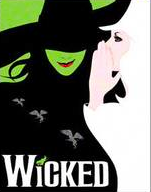 Years from now, when the musical Wicked is eventually made available for school and amateur productions, will some high school administrator declare it inappropriate? After all, among its many plot strands is the story of (spoiler alert) the manipulative Madame Morrible, a school headmistress who schemes against those in Oz who don’t conform precisely to her standards, be they green girl or anthropomorphic animal. It’s a terrible portrait of pedagogy gone wrong and surely doesn’t foster the collaborative, supportive relationships that school leaders must seek with each successive generation of students, as well as with their faculty and staff. From that perspective, it’s seditious.
Years from now, when the musical Wicked is eventually made available for school and amateur productions, will some high school administrator declare it inappropriate? After all, among its many plot strands is the story of (spoiler alert) the manipulative Madame Morrible, a school headmistress who schemes against those in Oz who don’t conform precisely to her standards, be they green girl or anthropomorphic animal. It’s a terrible portrait of pedagogy gone wrong and surely doesn’t foster the collaborative, supportive relationships that school leaders must seek with each successive generation of students, as well as with their faculty and staff. From that perspective, it’s seditious.
I’m reminded of this element of Stephen Schwartz and Winnie Holtzman’s massively popular musical as I consider the challenges to high school theatre that I’ve read about, heard about and involved myself in. Recently, I was engaged to deliver the opening keynote at the Educational Theatre Association’s (EdTA) annual conference for high school teachers. During the question and answer session that followed, one attendee asked the others how many had had shows turned down when they sought approval for them. Roughly a quarter of those in the room raised their hands. In follow-up, they were asked how many had wanted to do certain shows, but didn’t even try because they were sure they couldn’t get approval. Virtually every teacher raised their hand.
Because I don’t believe that these teachers had all been contemplating Oh! Calcutta!, I find myself wondering about their internal decision-making, their self-censorship. Surely they weren’t considering shows which would be blatantly inappropriate in a school setting, so what are those shows that they thought would be good for their students, but which they didn’t even dare raise as a possibility? That might make for an interesting survey in itself.
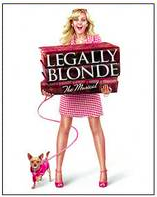 Of course, what’s acceptable to the powers that be at one school, in one town, may be considered problematic in another. Earlier this year in New Hampshire, Sweeney Todd was canceled at Timberlane High School (since reversed) even as another school just a few towns away readied their production of the same show. In 2012, Sonja Hansen lost her position directing shows at Loveland High in Ohio after her production of Legally Blonde was declared inappropriate, yet according to the EdTA’s annual survey, its was the fourth most popular musical in high schools nationally.
Of course, what’s acceptable to the powers that be at one school, in one town, may be considered problematic in another. Earlier this year in New Hampshire, Sweeney Todd was canceled at Timberlane High School (since reversed) even as another school just a few towns away readied their production of the same show. In 2012, Sonja Hansen lost her position directing shows at Loveland High in Ohio after her production of Legally Blonde was declared inappropriate, yet according to the EdTA’s annual survey, its was the fourth most popular musical in high schools nationally.
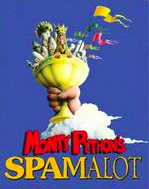 So I’m very interested in the new “Public Performance Policy” that has been put into place at the Junior/Senior High in South Williamsport PA, where a production of Spamalot has been canceled by the principal for reasons that remain unclear. The drama director Dawn Burch asserts that Principal Jesse Smith stated, in an e-mail, that the show’s gay content was a factor. Smith himself has been silent since this story broke, and while the school administration has taken exception to one element of the first report about the issue (since corrected), it has yet to produce the e-mail in question to clear things up. Two “Right To Know” requests have been filed seeking that e-mail and related documents; one of those requests is mine.
So I’m very interested in the new “Public Performance Policy” that has been put into place at the Junior/Senior High in South Williamsport PA, where a production of Spamalot has been canceled by the principal for reasons that remain unclear. The drama director Dawn Burch asserts that Principal Jesse Smith stated, in an e-mail, that the show’s gay content was a factor. Smith himself has been silent since this story broke, and while the school administration has taken exception to one element of the first report about the issue (since corrected), it has yet to produce the e-mail in question to clear things up. Two “Right To Know” requests have been filed seeking that e-mail and related documents; one of those requests is mine.
The timing of the Public Performance Policy, revealed last night at a meeting for the school board, is certainly no coincidence, coming between the initial assertions of anti-gay bias and the release of clarifying materials. As read by the school superintendent, Dr. Mark Stamm, it states:
General Guidelines: Public performances serve as a capstone project for students to showcase their dedication, determination, and talents for their peers and for their families. Performances must be age appropriate for participating students and audiences. Material that is generally considered offensive, suggestive, or demeaning based on race, religion, age, gender, or sexual orientation is not appropriate for school performances.
The first sentence of the policy, describing “showcasing dedication, determination, and talents,” is nicely affirmative – until one notices that there’s no mention of learning or growth, which would seem essential in any school activity, even at South Williamsport, where the drama program is extracurricular, and the drama director an outside contractor, not a teacher. That said, any adult working with young people in a leadership position is a teacher, accredited or not.
However, it’s worth noting that there is a mission statement for the drama program on the school’s website which admirably speaks to deeper value. It reads:
Our mission is to provide students with the opportunity to better themselves through the Arts. Whether it is onstage or backstage, in the production crew or artistic departments, theater helps all people more deeply understand our place in our modern, multicultural, globalized world.
As an aside: finding the drama information on the school website isn’t entirely logical. While there’s a section for clubs, which includes “Yearbook,” “Chemistry,” “Student Council” and “Songwriters and Musicians,” it doesn’t include “Drama.” The Athletic Program has its own site, with its own URL separate from the school district’s. But “Drama” falls under “Departments,” along with “Guidance” and “Nurse,” to which it seems wholly unrelated. How very odd to set it apart in this way.
But returning to the Public Performance Policy, the second sentence isn’t particularly troublesome, so long as it is not used as a justification to infantilize students by feeding them dramatic pabulum. But it’s the third sentence sentence where things turn tricky. While the phrase about not demeaning any parties is admirable (although in their seeming haste, they neglected disability, among other concerns), the language which begins the sentence is limiting, yet vague. “Offensive” and “suggestive” are completely subjective, presumably to be determined according to Justice Stewart’s famous phrase about what constitutes obscenity: “I’ll know it when I see it.” But no two people probably agree about what is offensive, or what is suggestive.
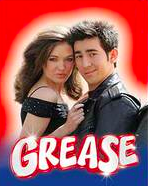 If this policy is meant to be general guidance for teachers (and contractors), shouldn’t it be constructed as such? Wouldn’t it be better to use affirmative language about supporting and advancing society through inclusive representations of race, religion, age, gender, or sexual orientation, instead of saying it simply won’t demean people on those grounds? As it is now, the policy seems more a declaration for the public, and a very general yardstick that teachers might be struck with should they violate its amorphous tenets. Since the school already has a practice of the principal approving the drama productions, it seems that process would presumably address content concerns, based upon reading the text and exploring productions and educational materials from other schools as aids, but in an open dialogue that would negate the need for future Right To Know inquiries. That said, I don’t favor shows going to any manner of public vote, and school boards shouldn’t decide play selection any more than they tell a coach what athletic plays to run.
If this policy is meant to be general guidance for teachers (and contractors), shouldn’t it be constructed as such? Wouldn’t it be better to use affirmative language about supporting and advancing society through inclusive representations of race, religion, age, gender, or sexual orientation, instead of saying it simply won’t demean people on those grounds? As it is now, the policy seems more a declaration for the public, and a very general yardstick that teachers might be struck with should they violate its amorphous tenets. Since the school already has a practice of the principal approving the drama productions, it seems that process would presumably address content concerns, based upon reading the text and exploring productions and educational materials from other schools as aids, but in an open dialogue that would negate the need for future Right To Know inquiries. That said, I don’t favor shows going to any manner of public vote, and school boards shouldn’t decide play selection any more than they tell a coach what athletic plays to run.
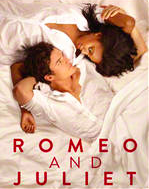 I wonder, however, where the concerns were when the South Williamsport High School did Grease and Once Upon A Mattress? Certainly there are those who would find the plot points about pregnancy out of wedlock in those shows both offensive and suggestive. Grease, frankly, is rife with suggestiveness, at least as I construe it, but I don’t happen to find it offensive; but it was more than enough to cause a school in Missouri, following a 2006 production, to cancel the next show on the schedule: The Crucible. What about Urinetown, produced at the school in 2009? All that talk of toilets and body functions must have offended the sensibilities of some in South Williamsport. The world’s most famous teen suicide story, Romeo and Juliet, was staged, but I wonder whether the school provided educational programs and material to students and the public about the dangers of romanticizing exactly the sort of behavior Shakespeare depicted?
I wonder, however, where the concerns were when the South Williamsport High School did Grease and Once Upon A Mattress? Certainly there are those who would find the plot points about pregnancy out of wedlock in those shows both offensive and suggestive. Grease, frankly, is rife with suggestiveness, at least as I construe it, but I don’t happen to find it offensive; but it was more than enough to cause a school in Missouri, following a 2006 production, to cancel the next show on the schedule: The Crucible. What about Urinetown, produced at the school in 2009? All that talk of toilets and body functions must have offended the sensibilities of some in South Williamsport. The world’s most famous teen suicide story, Romeo and Juliet, was staged, but I wonder whether the school provided educational programs and material to students and the public about the dangers of romanticizing exactly the sort of behavior Shakespeare depicted?
Was everyone sanguine with the following plot points, drawn from two synopses on the website of the licensing house Music Theatre International:
Soon after, attractive and seductive women appear and slowly surround him (“With You”). At first, Pippin is enjoying the romanticism, however, the mood quickly changes and the women bombard him. Pippin is pulled into numerous exotic orgies.
* * *
Audrey has forgotten her sweater, and Orin slaps her around for it…. Orin then pulls out a container of laughing gas, complete with a gas mask and puts it on himself to get high… Seymour feeds Orin’s body parts to the plant.
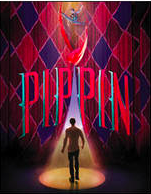 Obviously they passed muster, because Pippin and Little Shop of Horrors were produced at the school before Dawn Burch was hired. With this new policy, could any of the aforementioned shows be done again? Indeed, since there are – sad to say and sad as it is – still people who find homosexuality offensive, would LGBT life in any play or musical be precluded from the South Williamsport stage in deference to their reactionary sensibilities?
Obviously they passed muster, because Pippin and Little Shop of Horrors were produced at the school before Dawn Burch was hired. With this new policy, could any of the aforementioned shows be done again? Indeed, since there are – sad to say and sad as it is – still people who find homosexuality offensive, would LGBT life in any play or musical be precluded from the South Williamsport stage in deference to their reactionary sensibilities?
At the EdTA conference, I repeatedly counseled teachers to cultivate open and honest communication about their work with their department heads, their principals, even their superintendents if possible. Support for sports seems a given at our schools, but support for all of the arts, and it seems theatre in particular, must be developed over time – and started anew each time a key leadership position changes personnel.
When cancelations emerge from behind school doors into the public consciousness, locally and nationally, genuine rifts inside school communities and even entire towns are always possible, with long-lasting and detrimental effects on drama programs. Some schools, such as in Everett MA, do away with drama altogether, deciding a fair and open discussion about dramatic value is simply a nuisance – and therefore the program is as well. Yet are sports shut down when a student is seriously injured, publicly? No. In the case of football, it remains celebrated, even as data on traumatic brain injury mounts, because athletic prowess and competition is honored. It is the thought and expression of theatre that seems to be the dangerous undertaking in so many instances.
Another question I now field with some regularity is whether it’s wise to speak up publicly about these conflicts, bringing them broader attention than they might otherwise receive. My response is that it does carry risk, but if people believe in the power of theatre to not only entertain but educate, in the best interest of the participating students first and foremost, staying silent only allows repression to flourish, and for students to be consigned to the blandest, safest, time-worn work possible. And doesn’t Wicked (among countless works of literature) teach us about the dangers of people working behind the scenes, censoring, excluding, supposedly in the best interest of the community at large?
Having cited Wicked twice, let me finish with a few lyrics that hark back to L. Frank Baum’s Oz stories. I think this pair of couplets, devised by master satirist Tom Lehrer almost 50 years ago, speak simply and directly to slippery words like “offensive” and “suggestive.”
When correctly viewed
Everything is lewd,
I could tell you things about Peter Pan
And the Wizard of Oz, there’s a dirty old man.
May 8th, 2013 § § permalink
 I keep expecting to get jaded. Even though the actuarial tables tell me that I’m more than halfway through my life, I can still be a teenaged drama club kid, over and over again, with only the slightest provocation. Yesterday was one of those days.
I keep expecting to get jaded. Even though the actuarial tables tell me that I’m more than halfway through my life, I can still be a teenaged drama club kid, over and over again, with only the slightest provocation. Yesterday was one of those days.
Like so many in “the business,” I started out as a performer in my high school shows, both plays and musicals. But as practical considerations like finances and family, as well as negligible talent, took hold, I shifted over to administration, allowing me to be close to what I loved, but without the vagaries of an artist’s life. I have never forgotten how much I enjoyed performing, but I moderated any dreams in that regard.
When I met high school acquaintances over the years who expressed surprise that I wasn’t still on stage, I’d preempt the conversation by saying I’d be happy just to sit in a jury box on an episode of Law And Order. I was as surprised as anyone when the universe – and one very generous person on Twitter – listened, and I landed a small speaking role on Law And Order: Special Victims Unit two years ago. I still can’t believe it.
As for standing on a Broadway stage, singing? I had moderated that to a lingering desire to one day write the liner notes for a cast recording, something more within my wheelhouse. (I came very close about nine years ago, for a Tony-winning show, but it was not to be.) I am, for reasons too mundane and absurd to mention, thanked in the liner notes of the reissue of The Golden Apple, but that doesn’t count.
So when I read last week of a recording session that would include the public on a track on the cast album of the Pippin revival, my heart leapt. I filled out forms online; I placed a few calls to friends in the industry. My not-so-submerged fanboy, my long suppressed performer, went into overdrive. This was my chance to sing on a Broadway cast recording. I had to do it. It wasn’t quite being in a Broadway show, but it was the next best thing.
Mind you, I would be doing my vocalizing with some 250 strangers; I wouldn’t get my name on the recording; royalties or even payment wasn’t in the cards. Only those I told about it would even know I was there. But I would know.
Whether it was fate or phoning, I got my e-mail notice, my golden ticket, that I was “in.” Yesterday, I lined up with what turned out to be more like 500 or 600 others to play the role of “audience” on the Pippin track “No Time At All.” As we filled the auditorium at the School for Ethical Culture on New York’s Upper West Side, I took note of the surroundings, which clearly are that of a church. I considered the phrase painted above the stage/altar: “The place where people meet to seek the highest is holy ground.” I found it rather apt, in my own secular interpretation, given the degree of devotion many have to musical theatre.
I was a mix of seasoned pro and giddy youth. I said hello to some of the journalists in attendance; I greeted a Twitter pal who had gotten in by volunteering to guard one of the microphone stands near an entryway; I chatted with Kurt Deutsch, whose Ghostlight Records will be releasing the cast album; I sat with my friend Bill Rosenfield, who during his days as head of A&R for RCA/BMG was responsible for countless cast recordings (and for filling out my CD collection with those discs). At one point, Kurt’s wife joined us in the pew where I was seated, so suddenly I was singing with the tremendously talented Sherie Rene Scott, only two people separating us. The radio host, author and accomplished musical director Seth Rudetsky was seated directly in front of me; I feared he might turn at any moment and cast me out as a poseur.
 But when the music team came out, I was just one voice in a big chorus, albeit one which knew the song before the first note was played. Imagine my surprise when, after being drilled on diction and rhythm, we were then taught harmony lines. I had not thought of myself as a “baritone” since high school chorus, nor had I attempted harmony in public in some 30 years. I was quickly reminded of my inability to remember anything but a melody line unless others around me are singing “my” line; scary flashbacks to my poor efforts at barbershop harmonizing ensued. Although we had been seated as we learned our parts, we were given the direction, “Let us stand,” as in worship and as in chorus rehearsals decades ago. I was surprised by the power of those three words.
But when the music team came out, I was just one voice in a big chorus, albeit one which knew the song before the first note was played. Imagine my surprise when, after being drilled on diction and rhythm, we were then taught harmony lines. I had not thought of myself as a “baritone” since high school chorus, nor had I attempted harmony in public in some 30 years. I was quickly reminded of my inability to remember anything but a melody line unless others around me are singing “my” line; scary flashbacks to my poor efforts at barbershop harmonizing ensued. Although we had been seated as we learned our parts, we were given the direction, “Let us stand,” as in worship and as in chorus rehearsals decades ago. I was surprised by the power of those three words.
Pippin’s composer/lyricist Stephen Schwartz was onstage for the session, and he was genuinely listening and tweaking what we did; Andrea Martin, although her vocal track had already been laid down in a studio, was there to egg us on. I was pleased to see them, but I know them both casually, so there wasn’t the sudden rush from being in the presence of celebrity. When Andrea first came out, she spied me and flashed a big grin and a tiny wave of recognition; I felt even more connected, more than just someone whose name got drawn along with so many others. Ah, a performer’s ego.
But the truest thrill was when every member of the assembled horde lifted their voices, including mine, in song. I had forgotten what it was like to sing in a group, in harmony, the magical mingling of one’s self with others in music, the unique vibration of the vocal cords and emotion that music can produce. Yes, a shotgun microphone was only a few feet away, but it was forgotten in the sheer happiness of being encouraged to sing full out, without embarrassment, on a tune that is undoubtedly one of the most effective and spirited earworms of the Broadway repertoire.
I’d still like to write some liner notes on day, but even if that doesn’t come to pass, I know that embedded in the Pippin cast recording is little old me, happily singing away for present and future generations of musical theatre fans. I am preposterously happy at the thought of being an indistinguishable footnote and at what is now already a memory of a magical hour.
I leave you with these random thoughts:
Thank you to every person at Pippin who made “my debut” possible.
I’ll be happy to sign your Pippin CD when it comes out (kidding, kidding).
Sing out Louise, whenever and wherever you can.














